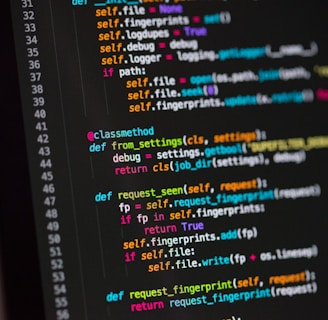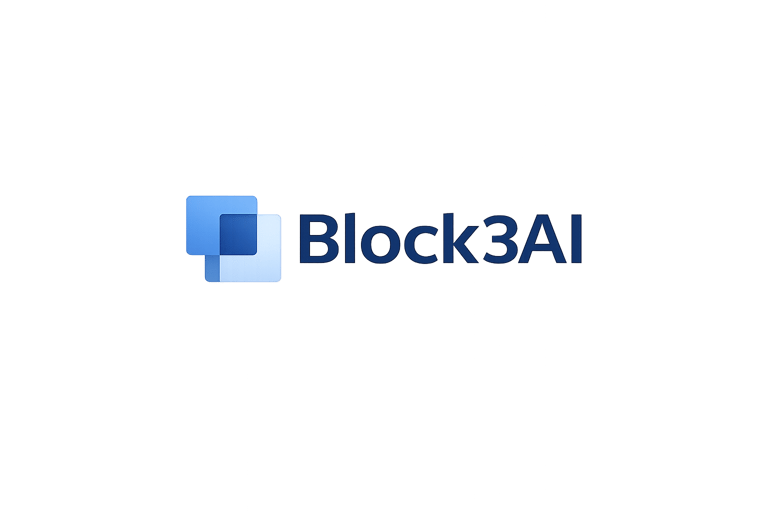AI and Smart Contracts
AI and Smart Contracts: The Future of Automated Agreements
AIWEB3BLOCKCHAIN
3/3/20253 min read


AI and Smart Contracts: The Future of Automated Agreements
The fusion of Artificial Intelligence (AI) and smart contracts is revolutionizing the way agreements are executed on the blockchain. As decentralized finance (DeFi), supply chain management, and digital identity systems continue to grow, AI-powered smart contracts introduce automation, adaptability, and intelligence—eliminating inefficiencies in traditional contract execution.
In this article, we’ll explore what smart contracts are, how AI is enhancing them, real-world use cases, and the future of AI-driven blockchain automation.
What Are Smart Contracts?
Smart contracts are self-executing agreements that run on blockchain networks. They automatically execute predefined terms when specific conditions are met, eliminating the need for intermediaries like banks or legal authorities.
🔹 How Smart Contracts Work:
• Written in programming languages like Solidity (Ethereum) or Rust (Solana).
• Conditions (e.g., “If X happens, then Y occurs”) are coded into the contract.
• Transactions and agreements are verified by the blockchain, ensuring transparency and security.
✅ Benefits of Smart Contracts:
• Trustless Execution: No intermediaries—contracts execute based on code.
• Security: Blockchain encryption prevents unauthorized changes.
• Speed & Efficiency: No manual approvals or third-party verification needed.
• Cost Reduction: Eliminates fees paid to middlemen.
📖 Learn More: Ethereum Smart Contracts Guide
How AI is Enhancing Smart Contracts
While smart contracts are efficient, they have limitations—they are static, meaning they execute commands exactly as coded, with no room for adaptability. AI bridges this gap by making smart contracts more intelligent, flexible, and autonomous.
1. AI-Powered Contract Automation
AI can optimize contract execution by predicting conditions, analyzing past transactions, and suggesting adjustments before execution.
🔹 Example: AI-driven smart contracts in decentralized finance (DeFi) can dynamically adjust interest rates based on real-time market conditions, reducing risk for lenders and borrowers.
📖 Explore DeFi Platforms: Aave: AI in DeFi
2. Smart Dispute Resolution
Traditional smart contracts cannot handle disputes—once a contract executes, it’s irreversible. AI can analyze contract conditions and transaction history to provide fair resolutions.
🔹 Example: AI can resolve e-commerce disputes in supply chain contracts by verifying shipment data using IoT (Internet of Things) sensors and blockchain records.
📖 Explore Blockchain in Supply Chain: IBM Blockchain for Supply Chain
3. Fraud Detection & Security Enhancement
AI can detect anomalies in blockchain transactions and prevent fraudulent contract executions.
🔹 Example: AI-powered Know Your Customer (KYC) verification ensures only legitimate parties sign contracts, reducing identity fraud risks.
📖 Explore AI Security Solutions: Chainalysis: Blockchain Security
4. Dynamic & Adaptive Contracts
AI-enhanced smart contracts can adjust to real-time data inputs like market fluctuations, weather conditions, or supply chain changes.
🔹 Example: In insurance smart contracts, AI can trigger automated payouts for farmers based on real-time weather data (e.g., drought detection via satellite imagery).
📖 Explore Blockchain Insurance Solutions: Etherisc: AI-powered Insurance
Real-World Use Cases of AI-Powered Smart Contracts
🔹 🏦 DeFi & Automated Trading
AI analyzes market conditions and adjusts lending rates, executes trades, and rebalances portfolios without human intervention.
• Example: Yearn Finance uses AI-driven algorithms for automated yield farming strategies.
🔹 🏭 Supply Chain Management
AI tracks goods from production to delivery, automating payments based on real-time logistics data.
• Example: VeChain enables AI-driven supply chain verification.
🔹 🩺 Healthcare & Medical Records
AI-powered smart contracts automate patient consent, drug trials, and insurance claims securely.
• Example: Solve.Care uses blockchain to improve healthcare administration.
🔹 🎮 Gaming & NFTs
AI can create interactive, evolving NFTs with smart contract automation.
• Example: Alethea AI offers NFTs with built-in AI personalities.
Challenges & Limitations
While AI-powered smart contracts offer significant benefits, they also present challenges:
⚠ Smart Contract Bugs – AI cannot fix poorly coded contracts, which still require thorough security audits.
⚠ Computational Costs – AI processes require more computing power, increasing gas fees on blockchain networks.
⚠ Regulatory Concerns – Governments may restrict AI-based automation in legally sensitive areas.
🔍 Solutions: Projects like Polygon offer scalable Layer 2 solutions to reduce costs, while AI-based security tools audit contracts for vulnerabilities before deployment.
The Future of AI-Powered Smart Contracts
The next phase of blockchain innovation will involve:
🚀 Self-Evolving Smart Contracts – AI will enable contracts to update themselves without requiring human intervention.
🚀 Decentralized AI Oracles – AI-driven blockchain oracles like Chainlink will improve real-world data integration.
🚀 AI-Powered Legal Contracts – Smart contracts will automate legal compliance, ensuring fair execution in cross-border agreements.
🔮 Final Thought: AI will not replace smart contract developers but will enhance their ability to create more secure, dynamic, and autonomous contracts.
📖 Explore AI & Blockchain Research: MIT Technology Review
AI-powered smart contracts are transforming finance, business, gaming, and healthcare, enabling automation, security, and efficiency. While challenges exist, AI’s integration with blockchain paves the way for smarter, more adaptive agreements, making Web3 more scalable and intelligent.
🔹 Want to stay updated on AI and blockchain? Visit block3ai.com/education for more beginner-friendly insights on Web3, AI, and crypto technologies! 🚀

Connect
Contact
Stay Up to Date
info@block3ai.com
© 2026. All rights reserved.
